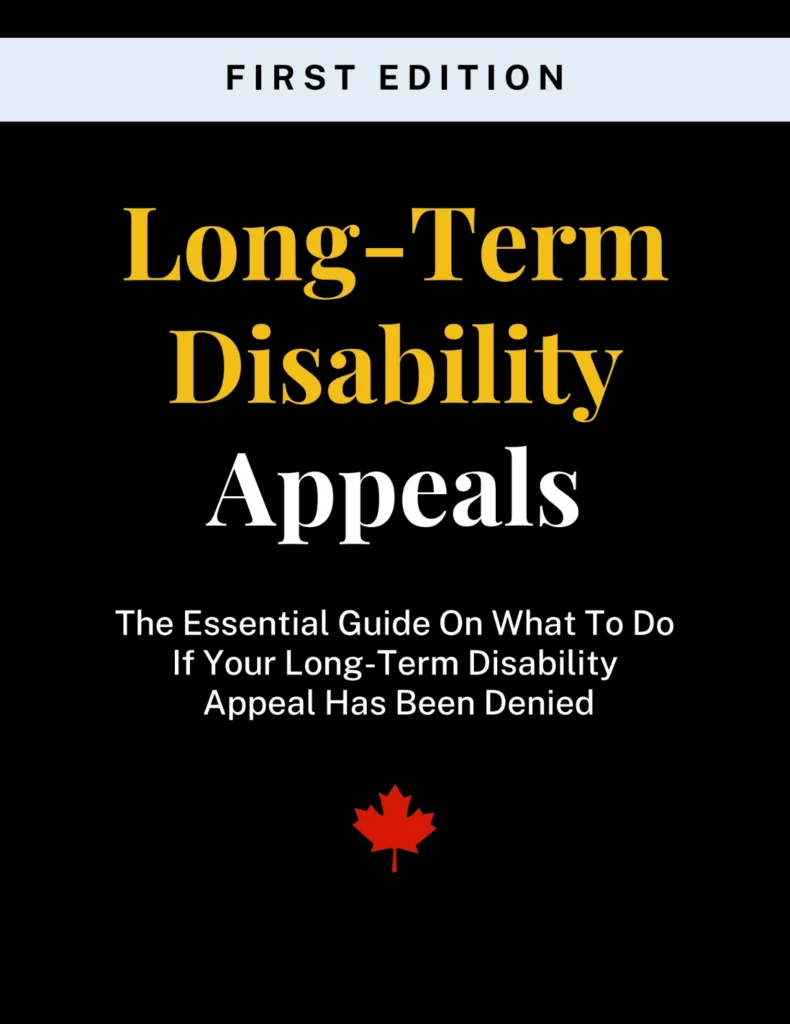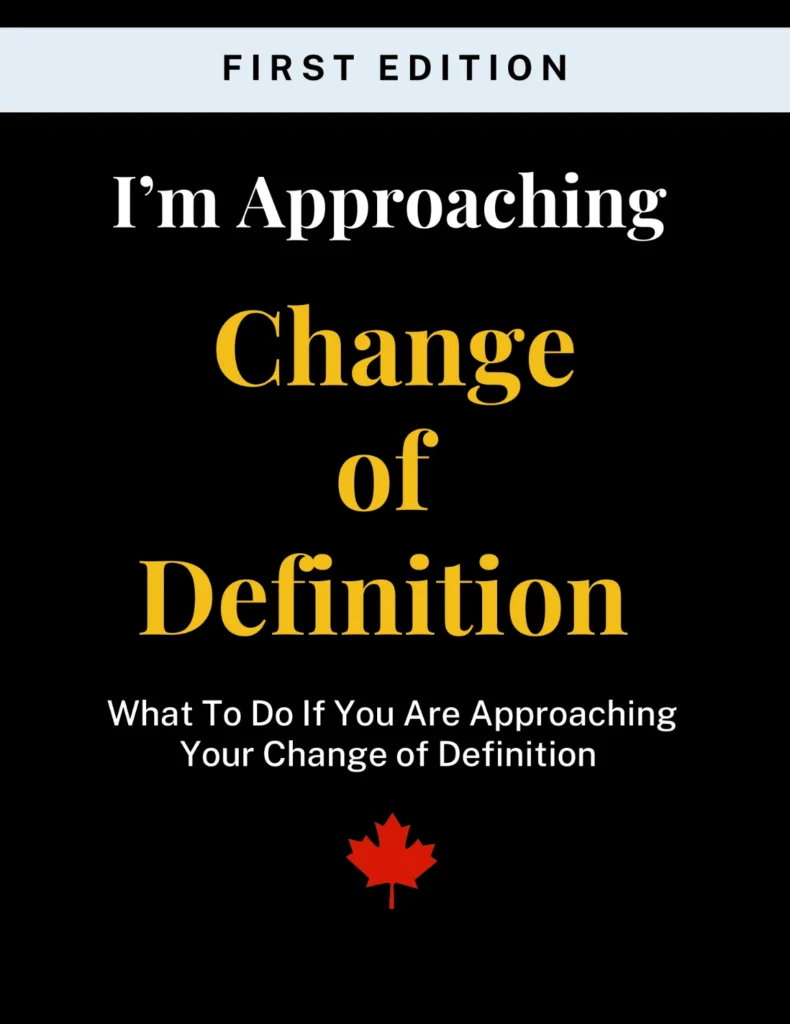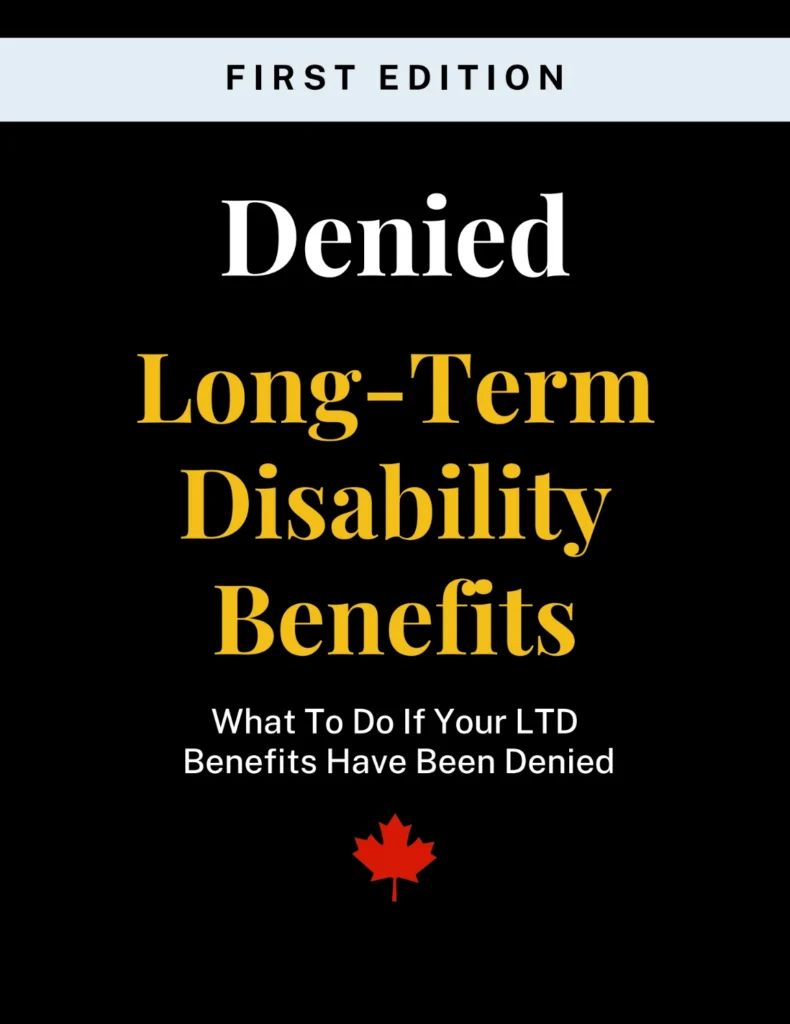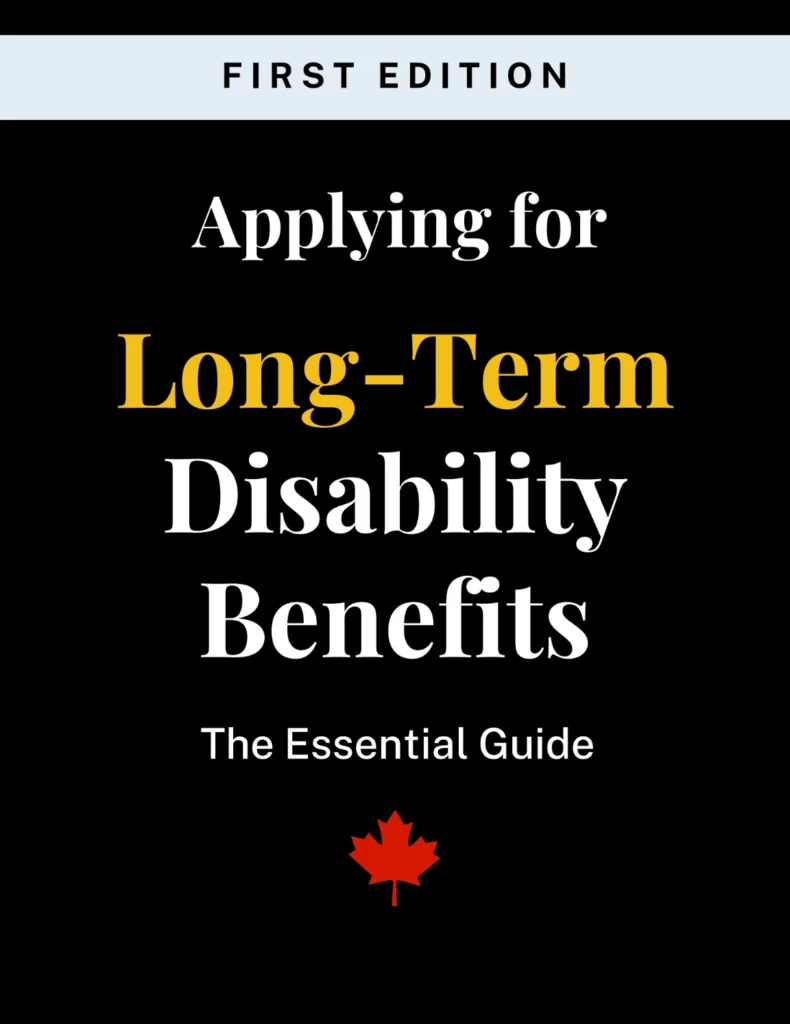London Long Term Disability Lawyer
Find out if you have a case today.
Contact our London long-term disability lawyers for a free consultation if you have legal questions regarding your long-term disability claim.
Table of Contents
If you live in London, Ontario and rely on long-term disability (LTD) benefits, you may already know how stressful the process becomes when an insurer delays or denies your claim. Illness or injury can make steady work impossible, leaving you uncertain about how to support yourself and your family.
An experienced London long-term disability lawyer can help you understand your options and hold insurance companies accountable. Preszler Injury Lawyers provides guidance and support to people across the city who need fair access to the benefits their policies promise. Contact us today for a free consultation to review your options.
Key Takeaways About LTD Benefits in London, ON
- Long-term disability benefits in Canada typically begin after short-term disability ends and can provide income replacement if you’re unable to work due to illness or injury
- Understanding the difference between “own occupation” and “any occupation” definitions in your policy is crucial, as it determines when benefits can be denied or terminated
- Insurance companies may deny valid claims or terminate benefits prematurely, but you have the right to appeal and pursue legal action under Ontario law
- The limitation period for filing a lawsuit against your insurer is generally two years from the date of denial, making prompt action essential
- Medical evidence and documentation are the foundation of successful long-term disability claims and appeals in Canada
LET US PUT OUR EXPERTISE TO WORK FOR YOU
Tell Us What Happened
Since 1959, we’ve helped thousands of Canadians get the compensation they deserve with their long-term disability claims. One of Canada’s oldest personal injury law firms, personal injury law is exclusively what we do. Book a free consultation today with our top-rated personal injury lawyers.
Our team is available 24/7 to speak with you.

What Is Long-Term Disability Insurance?
Long-term disability insurance provides financial support when health conditions stop you from working for an extended time. Policies vary, but most offer a percentage of your pre-disability income if you meet the definition of disability in the contract. Understanding how LTD works helps you know what to expect if you apply.
Understanding LTD Coverage in Canada
- Income replacement: Most policies pay between 60 and 70 percent of your pre-disability earnings.
- Definition of disability: During the first two years, many policies use the “own occupation” test, meaning you qualify if you can’t perform your specific job. After two years, insurers often switch to “any occupation,” meaning you must show you can’t perform any job suited to your training or education.
- Medical documentation: Insurance companies require medical evidence from your treating doctors to confirm your condition prevents you from working.
- Duration: Benefits may continue until age 65 if you remain disabled under the policy terms.
Group vs. Individual LTD Policies
Group policies are offered through employers. Premiums are lower, but coverage terms are standardized and may favour the insurer. Individual policies are purchased privately, often with higher premiums but more customizable benefits. Knowing which policy you have is important because rules differ when a dispute arises.
What Conditions Qualify for Long-Term Disability in Ontario?
A wide range of medical conditions may qualify, provided they prevent you from working. Insurance companies sometimes question whether certain conditions truly limit work ability, which is why detailed medical support is key.
Physical Disabilities and Chronic Illnesses
Serious injuries such as spinal cord damage, severe arthritis, or chronic pain disorders often prevent people from returning to regular employment. Conditions like multiple sclerosis, cancer, and advanced heart disease may also qualify if symptoms interfere with job performance.
Mental Health Conditions and Psychological Disabilities
Mental health plays a major role in LTD claims. Depression, anxiety disorders, post-traumatic stress disorder, and bipolar disorder often limit a person’s ability to maintain consistent employment. Insurers sometimes scrutinize these claims closely, which makes medical notes and treatment history critical.
The Definition of Disability in Your Policy
Each policy sets its own rules. Some use strict wording that narrows eligibility. For example, a policy may cover only conditions with objective test results, while others accept clinical diagnoses. Understanding your policy language is the first step to knowing your rights.
How Does the Long-Term Disability Claims Process Work?
Insurance companies require detailed information, and they often request updates long after the first approval. Understanding how the process unfolds helps you prepare for what to expect and avoid common pitfalls that insurers use to delay or deny claims.
Initial Application Requirements
The application process usually starts with three main forms:
- Claimant statement: You complete this form yourself. It asks about your medical condition, your work duties, your symptoms, and how those symptoms affect your ability to work.
- Employer statement: Your employer provides details about your job description, hours, and earnings before your disability began. This form also confirms the last day you worked and whether any accommodations were attempted.
- Physician statement: Your treating doctor fills this out. It describes your diagnosis, treatment, prognosis, and limitations. The strength of this form often sets the tone for how seriously the insurer treats your claim.
After submitting the forms, insurers may request further information, such as specialist reports, diagnostic test results, or therapy notes. Missing paperwork or vague answers may give the insurer an excuse to stall or reject your application.
The Elimination Period
Every LTD policy includes a waiting period, sometimes called the elimination period, before benefits start. This period usually lasts 90 to 120 days. During this time, you’re expected to remain continuously disabled. People often rely on short-term disability coverage, sick leave, or Employment Insurance sickness benefits to stay financially afloat.
Ongoing Proof of Disability
Approval doesn’t end the process. Insurance companies often continue monitoring your case by requiring updated medical records, treatment plans, or progress reports. They may send questionnaires for you and your doctor to complete, asking whether you’ve improved and whether you could return to work in some capacity.
Additional Insurer Requests
Beyond standard documentation, insurers may take extra steps to test your claim:
- Telephone interviews: Representatives may call to ask about your daily activities or medical treatment. Inconsistent answers compared to your forms can hurt your claim.
- Surveillance: Some insurers hire private investigators to observe you in public, looking for footage they can use to suggest you’re healthier than reported.
- Functional capacity evaluations: These assessments test physical or cognitive abilities. Results may be used to argue you can return to work, even if the testing doesn’t reflect real-life conditions.
Transition From Own Occupation to Any Occupation
Most LTD policies change definitions after two years. During the first stage, you must show that you can’t perform your own job. After that, you must prove you can’t perform any job suited to your skills, training, or education. Many insurers target this transition period as an opportunity to terminate benefits.
Communication With the Insurer
Insurance companies often communicate through written letters filled with legal and medical jargon. These letters sometimes downplay the severity of your condition or cite vague policy language. It helps to have a lawyer who can intercede on your behalf and deal with the insurance company for you.
Why Do Insurance Companies Deny LTD Claims?
Insurance companies often reject or terminate claims to limit payouts. Understanding their tactics helps you protect yourself.
Insufficient Medical Evidence
If your medical records don’t clearly outline your limitations, insurers may claim your disability isn’t proven. Detailed reports from specialists strengthen your file.
Surveillance and Social Media Monitoring
Insurers sometimes hire investigators to film claimants in public or review social media posts. Even routine activities may be misrepresented as proof that you’re capable of working.
Independent Medical Examinations (IMEs)
Insurers often send claimants to doctors of their choosing. These doctors may downplay the severity of your condition, giving the insurer justification to deny benefits.
Pre-Existing Condition Exclusions
Some policies exclude conditions diagnosed or treated before coverage began. Disputes arise when insurers apply these exclusions too broadly.
What Are Your Rights Under Canadian Insurance Law?
Ontario law provides protections for people with LTD coverage. Insurers must act fairly, but they don’t always do so without pressure.
The Duty of Good Faith and Fair Dealing
Insurers must treat policyholders fairly and avoid unreasonable delays or denials. If they act in bad faith, courts may award additional damages.
Can You Appeal a Denied LTD Claim?
Many people feel discouraged after receiving a denial letter, but appeals are possible with the right evidence and documentation.
The Internal Appeals Process
Most insurers offer an in-house appeal process. However, success rates are often low since the insurer reviews its own decision.
Preparing a Strong Appeal
Medical records, witness statements, and expert opinions may strengthen your appeal. Every document you submit should directly connect your condition to your inability to work.
When to Involve Legal Representation
If your appeal stalls or your benefits remain denied, a lawyer can help escalate the matter. Sometimes, lawsuits prompt insurers to take claims more seriously.
What Damages Can You Recover in an LTD Lawsuit?
A lawsuit may provide more than unpaid benefits. Courts recognize the harm caused by unfair insurance practices.
Past and Future Disability Benefits
Courts can order insurers to pay benefits owed and reinstate ongoing payments until the end of the policy.
Aggravated and Punitive Damages
If the insurer acts dishonestly or treats you unfairly, courts may award additional damages as punishment and deterrence.
Pre-Judgment and Post-Judgment Interest
Ontario law allows interest on amounts owed, ensuring you receive compensation for the time the insurer withheld benefits.
How Long Do You Have to Sue Your Insurance Company?
Time limits apply, and acting quickly protects your rights. A long-term disability lawyer can help you identify limitation periods according to your specific policy as well as Ontario law.
Ontario’s Limitation Periods for LTD Claims
The general rule is two years from the denial date. Courts rarely allow claims after that time.
Discovery of Claim and Discoverability Principle
Sometimes, courts extend the deadline if you couldn’t reasonably have known your claim existed. For example, if the insurer misled you, the clock may start later.
Exceptions and Special Circumstances
Fraud, misrepresentation, or other misconduct may extend limitation periods. These situations are rare, but they do happen.
How Our Lawyers Can Help
Preszler Injury Lawyers has helped many people in London and the surrounding areas hold insurance companies accountable. We work with you to build the strongest case possible.
Comprehensive Claim Review and Case Evaluation
We review your policy, medical records, and correspondence with the insurer to identify strengths and weaknesses in your claim.
Gathering and Organizing Medical Evidence
We coordinate with doctors and specialists to collect the records insurers require. Clear, consistent documentation often makes the difference in claim approval.
Negotiating With Insurance Companies
Our lawyers handle communications with insurers, protecting you from pressure and unfair tactics.
Litigation and Trial Representation
If insurers refuse to pay, we prepare your case for court. Our team pursues every legal option available.
Maximizing Your Compensation
We help document lost income, treatment costs, and other impacts to present a complete picture of your losses.
Frequently Asked Questions About LTD Benefits in London, ON
How much does it cost to hire a long-term disability lawyer in London, Ontario?
At Preszler Injury Lawyers, our London long-term disability lawyers work on a contingency fee basis, meaning payment is based on a percentage of recovered amounts. You don’t pay upfront legal fees.
Can I work part-time while receiving long-term disability benefits?
Some policies allow limited part-time work if income doesn’t exceed certain thresholds. Always check your policy before working, as some insurers may suspend benefits.
What happens to my LTD benefits if I’m approved for CPP Disability?
Many LTD policies reduce your benefits by the amount you receive from CPP Disability. However, CPP approval often strengthens your case with your insurer.
How long does it take to resolve a long-term disability claim dispute?
Timelines vary. Some disputes are resolved in months, while others take longer, depending on court schedules and insurer cooperation.
What should I do if my insurance company asks me to attend an independent medical examination?
You usually must attend, but you’re allowed to ask questions about the process. Bringing a trusted person as a witness and keeping detailed notes can help protect your rights.
Contact Our LTD Benefits Lawyers in London, ON, Now
If you live in areas like Byron, Old East Village, or Southcrest and your LTD claim has been delayed, denied, or cut off, you don’t have to deal with the insurer alone. The earlier you take action, the more options you may have for protecting your benefits.
Contact Preszler Injury Lawyers for a free case evaluation. Call (888) 608-2111 today to learn how we may be able to assist you.
Proudly Canadian
Award Winning Personal Injury Law Firm
We are proud to be one of Canada’s oldest and long-standing personal injury law firms. Since 1959, we have been providing exceptional legal services and have established ourselves as leading personal injury lawyers in the Canadian legal community. It’s not just the awards that recognize our achievements, but also the wins we’ve achieved for thousands of Canadians with their long-term disability claims.
Case Results
long-term disability Settlements
Please note that past results are not indicative of future results as each scenario presents itself with its unique set of circumstances. But here are some long-term disability related wins we’ve had for our clients.
More long-term disability Topics
Here’s more information on long-term disability related topics that we think you might find helpful.

long-term disability
|
January 21, 2026
Understanding the “Own Occupation” Clause in Long-Term Disability Insurance Benefits
The “own occupation” clause in long-term disability insurance defines a period, usually the first two years of a claim, where benefits are paid if you…

long-term disability
|
January 21, 2026
What Happens When Your LTD Benefits Are Terminated After Years of Approval?
When long-term disability (LTD) benefits are terminated after years of approval, it usually signals that the insurance company believes you no longer meet the specific…

long-term disability
|
March 12, 2024
Navigating Long-Term Disability and Long COVID in Ontario
Though the days of lockdowns, vaccine passports and physical distancing seem to be mostly behind us, the risk of contracting COVID-19 is still great. At…
More long-term disability Video Resources
We also have some videos on the topic of long-term disability claims
long-term disability FAQs
Here are some commonly asked questions for long-term disability claims
Can I appeal a CPP Disability denial?
Yes, CPP denials can be appealed through the Social Security Tribunal, which reviews applications and medical evidence.
What if my doctor doesn’t support my disability claim?
You may seek a second opinion from another qualified physician to provide additional evidence.
Can the insurance company cut off my benefits without notice?
Insurers may stop benefits if they believe you no longer meet the disability definition, but they must provide reasons.
Will my employer know about my disability claim?
Employers usually only know that you’re receiving LTD benefits, not the details of your medical condition.
What happens if I’m approved for CPP Disability benefits?
Your LTD insurer may deduct CPP benefits from your LTD payments. Approval for CPP Disability may strengthen your LTD case.
Can I work part-time while receiving long-term disability benefits?
Sometimes, policies allow partial benefits if you can work reduced hours. The rules depend on your policy language.
Can my LTD benefits be taxed?
Taxation depends on whether your premiums were paid with pre-tax or after-tax income. If your employer paid the premiums, your benefits may be taxable.
What if my employer terminates me while on disability?
Employment termination doesn’t automatically cancel your LTD benefits. Your coverage may continue as long as you were covered when you became disabled.
LONG-TERM DISABILITY BENEFITS DENIED OR CUT-OFF IN LONDON?
Call Our LTD Lawyers for FREE Now
We take on insurance companies for you
Learn how we can challenge your denial or termination and help you secure the benefits you’re entitled to.
Proudly Serving London
Book Your FREE Consultation
Preszler Injury Lawyers assists clients throughout London and across Canada with a wide range of legal matters.
Contact us today to get started with a free consultation.








